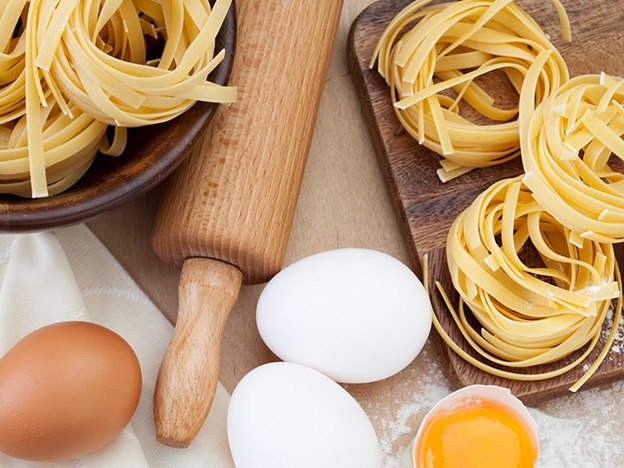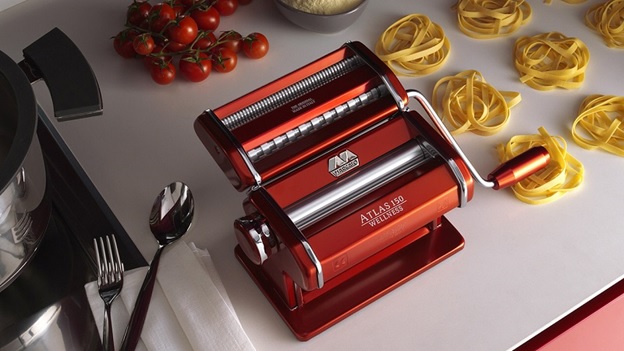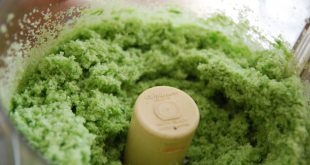Ready-made pasta is quite affordable and tastes just fine. However, anyone who’s ever tried some quality pasta will tell you that fresh pasta is where it’s really at. Whether it’s macaroni, spaghetti, linguine, lasagna or ravioli, pasta makers allow you to make your own fresh batch so your guest can enjoy a variety of pasta dishes superior in texture and flavour. So, if you’re running an Italian restaurant or some other type of business where pasta is at the centre of your menu, you’ll obviously need a good pasta maker.

However, before you open up your wallet and spend your hard-earned money on a pasta maker, you’ll need to figure out what kind of machine will suit your needs and budget best. Here are the different types of popular pasta makers you’ll find at a well-stocked commercial food equipment store and the most important factors to guide your purchase.
Manual Pasta Makers

Manual pasta makers, also known as pasta rollers, are more affordable, but they require a fair amount of time and work to make pasta. Still, it’s easier to make pasta using a manual pasta maker than it is making pasta by hand. These pieces of food equipment have a classic design that utilises a manual handle to roll the pasta through it. They also feature a cutting tool to snip the pasta at the end.
Manual pasta makers are more suitable for longer styles of pasta like spaghetti and fettuccine. Due to their simple design, there are less things that can break, making them reliable and long-lasting. However, if speed is of essence for your operation, they may not be the best choice.
Automatic Pasta Makers

Automatic pasta makers do most of the work for you. allowing you to make pasta quick and easy. Plus, they allow you to make more types of pasta, such as macaroni and ziti thanks to the different attachments. Of course, automatic pasta makers cost more than manual pasta makers, and since they incorporate electric parts, there are more things that can go wrong, and you might have to perform some maintenance and repairs.
However, with these food machines, all you have to do is make the dough, feed it into them, and voila – you get pasta. The cleaning process is also easier with these machines than it is with their manual counterparts, as you can often take them apart and wash them in your dishwasher. So, if you think pasta will be a staple dish in your restaurant, automatic pasta makers are worth considering.
Things to Consider When Picking a Pasta Maker
No matter whether you opt for a manual or automatic pasta maker, there are a few additional things you’ll have to consider in order to figure out the best model for you.
Ease of Use
The entire point of buying these food machines is to make the whole process easier than it is doing it by hand. As aforementioned, the biggest factor is whether you get a manual or automatic model. However, even beyond that, different models within both manual and automatic pasta makers can have different designs and features that play a role in how much work you need to do in order to make pasta.
For instance, some automatic models are designed to mix and knead the pasta dough, and make the pasta on top of that. So, all you have to do with these models is throw in the ingredients in the machine and you’ll get fresh pasta. Manual pasta makers, on the other hand, can come with features that make sure the unit stays in place while you work, a knob that makes it easy to change the thickness of the pasta, and a handle that stays in place, making the pasta maker easy to use.
Speed of Use
Making pasta with a manual pasta maker is slower and typically, there won’t be a significant difference in speed of use between different models. With automatic machines, however, it’s one of the biggest selling points between brands. Every brand will claim that their pasta maker is the fastest. That being said, do your due diligence and spend some time reading reviews or watching videos on how each machine works before you come to a conclusion. If speed is important to you, the spec sheets of every model should list how fast they produce pasta.

Ease of Cleaning
Let’s face it, the least favourite part of working in a commercial kitchen is cleaning the equipment. If you plan on making your own pasta, you’ll have to deal with lots of crannies and nooks, which is not fun. The units that you can take apart are often easier to clean, as they allow you to reach places that you would otherwise have a difficult time reaching. Any unit that you can disassemble and throw at least a few parts of in a commercial dishwasher will make life much easier. That being said, before you decide on a model, learn what it takes to clean it.
Durability
A pasta maker from a reputable brand will last many years. Of course, you’re going to pay more for such a model. That being said, look for brands that have been in the commercial food equipment business for some time, and have built up a reputation for making high-quality food machines.
Durability is arguably the only category where manual pasta makers outperform their automatic counterparts. By not having any electrical parts, you can rest assured a well-designed and well-maintained manual pasta makers will last a very long time.
Furthermore, make sure the unit you buy comes with a warranty. A year long warranty is standard, although some brands offer up to ten years. Having a warranty on your automatic pasta maker is especially important, as there are more things that can go wrong with them.
 World inside pictures Collect and share the best ideas that make our life easier
World inside pictures Collect and share the best ideas that make our life easier








